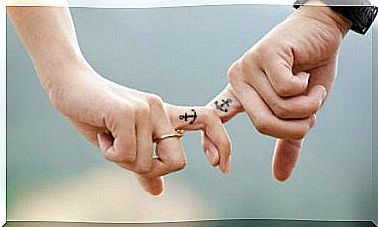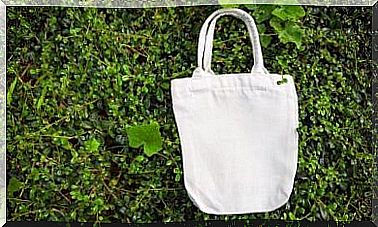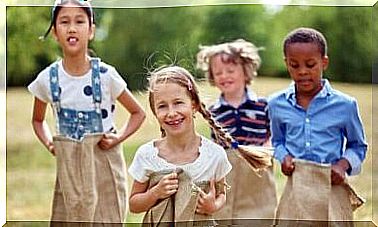Help Your Child Understand Who A True Friend Is
Teaching your child to distinguish someone who behaves like a true friend will help them identify toxic relationships. Recognizing himself and acting like a good friend also allows him to enjoy the blessing of friendship.
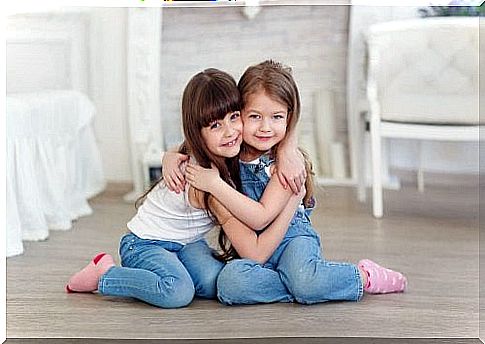
Parents are children’s first friends. We share their games and experiences. However, it is only natural that as they grow older they begin to have new relationships. They make friends at school, in the neighborhood or among the children in the family. How can we help them understand who a true friend is during this emotional experience of growing up?
Labor begins at the age of 4 or 5. Indeed, this is when our children begin to develop one of the most important social skills such as learning to have and keep true friends. Then they will need to learn to recognize when a friendship is becoming a source of angst or worry.
Teaching them the value of friendship from an early age is one of the main tasks as parents. In addition, it is essential if we want our children’s friendships to be able to bring happiness.
Help your child understand who their true friend is
If you are a parent, it may seem obvious that friendship is a positive experience. On the other hand, the little ones should understand that it does not happen that way for everyone. Besides, if we don’t experience it that way, something isn’t working. Children need to learn early on what a true friend is and that friendships are a source of love.
How to recognize a true friend?

We cannot choose our children’s friendships let alone during their teenage years. Indeed, this is the time when their friends take all the interest and become the most important people in their life. What we can do, however, is guide them so they know how to build valuable relationships in which respect and sincerity prevail.
You can ask your child to check which of their friends are showing the signs below. This way, he can determine for himself who is a true friend and who is not:
A good friend :
- Celebrate your accomplishments and support you through tough times: He screams with you when you get the grade you expect or when you score a goal. On the other hand, he is by your side when something worries you and encourages you to overcome it.
- Helps you
- Treats you well and is kind to you. Besides, he never laughs at you or your opinions.
- Is honest. Also, he tells you the truth about what he thinks and doesn’t change his attitude towards you when you least expect it.
- Stay away from conflicts and don’t make fun of people
- Is loyal and consistent. Even when you argue, you don’t mind losing their friendship
- Laugh and have fun with you
- Don’t care if you have any other friends
- Respect your opinion and let you speak. Even if he doesn’t agree with you, he respects your beliefs
- Doesn’t force you to do what you don’t want to do: also, if you don’t want to go to a party, or use alcohol or do drugs, he respects your decision without judging you
Our child can be sure that if he has at least one friend who meets half of these characteristics, he undoubtedly maintains an important friendship relationship.
How can you help your child overcome toxic friendships?
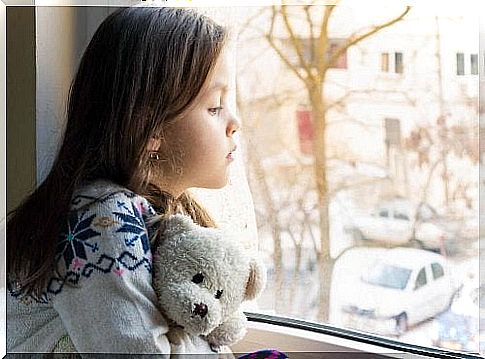
Every afternoon, after returning from high school, Marina locks herself in her room. Her mother knows this is her way of isolating herself due to the treatment she receives from one of her best friends. Indeed, one day she stays with her and the other, she completely ignores her and isolates her from the rest of the group. Marina doesn’t know how to react to this friend who loves and hates her at the same time. However, this is completely normal.
As in any human relationship, communication is fundamental. In order to guide your child through a toxic friendship experience, communication is the ideal tool. First of all, listen to it and listen patiently. Follow the emotional journey that makes you feel the conflict he is going through. Therefore, the fact that he is expressing his emotions is already a form of liberation.
Tell him how much he is worth
You can help your child build self-esteem. In order to do this, he must devote more attention to other activities in which he is good and which allow him to access other groups of friends. In addition, you can also encourage him to focus on making friends with other children in the class, among whom he can find real friends.
But first and foremost, we need to help our children overcome the challenge they face in going through a harmful friendship. Guide them to help them learn and understand the relationships they make. This will allow them to have a stable position to go beyond the troubles of adolescence.
Be the true friend of others
American poet and philosopher Ralph W. Emerson wrote that “the only way to have a friend is to be one”. It’s a good concept for our kids to understand what a true friend is. So when we treat people well, demonstrate the qualities of a true friend, and do the right thing, we attract the right people. Therefore, it is very likely that our way of being attracts a good friend.
Children who receive attention and guidance from their parents on forming good friendships have more opportunities to identify what a true friend is. On the other hand, they forge unalterable relationships rich in experience.


